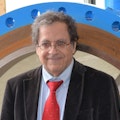Mergers, acquisitions and partnerships made news in 2024. Of course, there have been many memorable acquisitions over the years such as Emerson’s purchase of Micro Motion in 1984, Siemens purchase of Controlotron in 2005, and Honeywell’s acquisition of Elster from Melrose Industries in 2015. More recently General Electric’s (GE) divestment of Baker Hughes began in 2020, and Yokogawa’s purchase of Adept Fluidyne, an Indian manufacturer of magnetic flowmeters, took place last year.
It’s not clear whether the recent acquisitions are a continuation of a long-term trend or as Sick Inc. said in a press release, “The [process automation] industry is in a state of flux, chiefly driven by climate protection and the long-term transition to non-fossil fuels and resources. This transformation process towards a CO2 neutral global economy calls for new technologies and solutions, e.g., for process automation.”
Get your subscription to Control's tri-weekly newsletter.
In other words, climate change and the need to develop renewable solutions drive companies to find more resources to develop new solutions for more challenging problems. This is no doubt part of the explanation. Here is a look at recent acquisition and partnership activity.
DwyerOmega acquired PST
DwyerOmega acquired Process Sensing Technologies Ltd. (PST), which means that it now owns Fluid Components International (FCI). FCI is a designer and manufacturer of thermal mass flowmeters, as well as level and flow switches that use the company’s patented thermal dispersion flow measurement technologies for a variety of industrial process measurement applications. PST acquired FCI in November 2023. DwyerOmega, a portfolio company of the private equity firm Arcline Investment Management, announced the PST acquisition on Nov. 21, 2024.
FCI was founded in 1964 by Malcolm McQueen and Bob Deane in the Los Angeles, Calif., neighborhood of Canoga Park, as a manufacturer of thermal dispersion flow switches used to detect flow movement in oil well pipes. In 1980, the company moved south to its current San Marcos location in San Diego County. In 1981, FCI added more sophisticated electronics to its flow switches and produced its first commercially available flowmeter, first used in gas flow applications. FCI operates a flow and level calibration facility used in both product development and customers’ product calibrations.
Emerson’s acquisition of FLEXIM
In August 2023, Emerson announced that it has a definitive agreement to acquire its business partner Flexim during the 2023 fiscal year, which ended Sept. 30. Emerson is a supplier of inline ultrasonic flowmeters and other flowmeters and automation solutions. Flexim, based in Berlin, Germany, with U.S. offices in Edgewood, N.Y., exclusively manufactures clamp-on ultrasonic flowmeters. In October 2016, Emerson announced an agreement to jointly collaborate in the design and installation of flowmeter products for capital projects, and the companies have partnered ever since. The deal was culminated at the end of September 2023.
Flexim was founded in February 1990 in an old storefront during turbulent times in Germany following the fall of the Berlin wall. Four graduates of Berlin's Humboldt University and the University of Rostock decided to take advantage of the new risks and opportunities by developing and manufacturing ultrasonic flow instrumentation. Two of the company founders studied ultrasonic flow measurement under Dr. Otto Fiedler, with whom they developed the first ultrasonic flowmeter prototypes. In 2005, the company opened its first U.S. facility in Suffolk County, N.Y. In 2017, Flexim opened its new company headquarters in Berlin, and in 2018, began research cooperation with PTB, Germany’s National Metrology Institute of Germany, to further improve measurement accuracy.
TechnipFMC sold its measurement solutions business to One Equity Partners
TechnipFMC announced on Nov. 20, 2023, that it has signed an agreement to sell its measurement solutions business, which includes flowmeters, for $205 million in cash to One Equity Partners (OEP), a middle market private equity firm based in New York City. The business has three units: metering products, metering systems and terminal management. The transaction was completed in March 2024. OEP has rebranded the measurement solutions business as Guidant.
The measurement solutions business was part of the TechnipFMC’s surface technologies segment, which serves onshore and shallow water markets from well to export pipeline. TechnipFMC also has a subsea segment that spans the full life of the field, from planning field developments to field services. TechnipFMC also focuses on energy transition.
Sick Inc. and Endress+Hauser formed partnership
Sick Inc. and Endress+Hauser signed a contract for a strategic partnership in process automation. The energy transition calls for new technological solutions for the decarbonization of the process industry, something the two companies will pursue by joining forces. The strategic collaboration included a joint venture to strengthen and expand the process-related solutions for decarbonization and the transfer of about 800 sales and service employees for process automation from Sick to Endress+Hauser.
The closing of the transaction was planned for the turn of the year 2024/2025. Per the deal, Endress+Hauser took over worldwide sales and service of Sick’s process analyzers and gas flowmeters under the responsibility of the joint venture, with each party holding a 50% stake.
What it all means
There are multiple reasons for the trend towards acquisitions and partnerships in the flowmeter industry. Sick is right that climate change and the move to renewable energy is one of the reasons. Its partnership with Endress+Hauser will put it in a better position to develop renewable energy products. The partnership will benefit Endress+Hauser by enabling it to offer Sick’s ultrasonic flowmeters for custody transfer of natural gas.
A company that wants to compete in this space may find another company with developed products that it can acquire or form a partnership. Measuring the flow of hydrogen is one example of a technically difficult task. If another company has already accomplished this task, a partnership might save time and money and serve to expand a company’s product line. Emerson’s partnership with and then purchase of Flexim is a good example. Flexim is a leader in clamp-on ultrasonic flowmeters. Adding clamp-on flowmeters to Emerson’s product line is a good way to complement Emerson’s largely inline ultrasonic offering. This can help in bidding for projects that require clamp-on meters or selling to companies that want to do check metering or need the flexibility that clamp-on meters offer.
Companies sometimes spin off several related divisions into a new company to enable them to focus more on their core competencies. Danaher’s spinoff of its environmental and applied solutions segment into a company named Veralto Corp. is an example. Veralto consists of 13 companies centered around the water and product quality business. The company most closely tied to flow measurement is McCrometer, known for its magnetic, V-Cone and propeller flowmeters.
Not all acquisitions are made for the purpose of augmenting product lines or adding to a company’s research capabilities. Large companies such as Arcline are private investment firms that make acquisitions mainly to improve their bottom line. There are two philosophies about acquisitions among these companies: “buy and hold” and “buy and sell over time.” Firms that buy and hold often buy several companies in adjoining product areas and plan to keep them indefinitely or until there is reason to sell. Firms that buy and sell typically keep a company for five to seven years and sell at a profit. In the meantime, they are likely to make investments to build up the value of the company.
There are many other reasons to acquire or partner with companies. Acquiring additional distribution channels, gaining access to coveted patents, buying a competitor and putting it out of business, and gaining a manufacturing foothold in another country are just some of the additional reasons for acquiring and partnering. Sadly, there is often a human toll connected with acquisitions, as companies find they have redundant departments. This may result in layoffs as the company downsizes or “right sizes.” This is an unavoidable possibility when acquisitions occur. However, acquisitions are market driven, and they will continue as long as the conditions are right. Today, conditions are very favorable for acquisitions and partnering. Watch for more changes in the flowmeter space.
For more information on flowmeters and the companies that partner and acquire in the flowmeter space, go to www.flowresearch.com.
About the Author

Jesse Yoder
Columnist
Jesse Yoder is founder and president of Flow Research Inc., which conducts market research studies in a wide variety of areas, including the flowmeter market.

Leaders relevant to this article:
